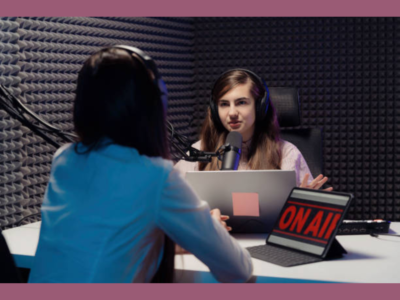Overview
COURSE DESCRIPTION
Anchoring is the act of hosting an event or program, such as a live show, conference, or awards ceremony. An anchor’s role is to keep the audience engaged, informed, and entertained throughout the event. If you are interested in becoming an anchor, here are some tips to get started:
- Research your topic: It’s important to have a solid understanding of the event or program you will be anchoring. Research the topic thoroughly and gather information that will help you deliver your content in an engaging and informative way.
- Plan your script: Plan your script in advance and make sure it is well-organized and easy to follow. Use language that is clear and concise, and try to inject some humor or personal anecdotes to keep the audience engaged.
- Rehearse your delivery: Rehearse your delivery several times to become comfortable with the material and your delivery. Practice in front of a mirror or record yourself to identify areas for improvement.
- Use body language: Use body language, such as hand gestures, facial expressions, and eye contact, to engage with the audience and convey your message.
- Be prepared for unexpected events: Be prepared for unexpected events, such as technical difficulties or changes to the program, and have a backup plan in place.
- Stay calm under pressure: Stay calm and composed under pressure, and maintain a positive attitude, even if things go wrong.
- Seek feedback: Seek feedback from colleagues or mentors to identify areas for improvement and fine-tune your performance.
By following these tips and practicing regularly, you can become a confident and effective anchor. Whether you are hosting a small event or a large conference, good anchoring skills can help you keep the audience engaged and deliver a memorable performance.
CERTIFICATION
Anchoring requires a combination of strong communication skills, confidence, and stage presence. Some key skills for effective anchoring include:
- Preparation: A good anchor will do their research and be well-prepared for the event or program they are hosting.
- Adaptability: An anchor must be able to think on their feet and adapt to unexpected situations or changes in the program.
- Engaging with the audience: An effective anchor will engage with the audience, ask questions, and make them feel involved in the program or event.
- Strong communication skills: Anchors must have strong verbal and nonverbal communication skills, as well as the ability to convey emotion and personality.
- Time management: Anchors must be able to keep the program or event on schedule and ensure that all segments are covered within the allotted time.
Anchoring can be a challenging and rewarding career, with opportunities in television, radio, and live events. With practice and experience, anyone can develop the skills needed to become an effective anchor.
LEARNING OUTCOMES
- We provide customized course for students- Online and offline both
- LIVE PROJECT End to End Software Testing Training Included.
- Learn Software Testing and Automation basics from a professional trainer from your own desk.
- Information packed practical training starting from basics to advanced testing techniques.
- Best suitable for beginners to advanced level users and who learn faster when demonstrated.
- Course content designed by considering current software testing technology and the job market.
- Practical assignments at the end of every session.
- Practical learning experience with live project work and examples.
Course Features
- Duration 33 hours
- Activities Anchoring Course






